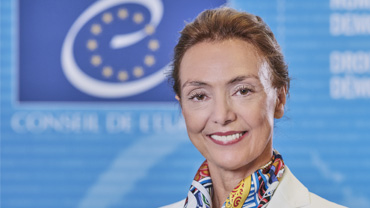Concerns persist regarding the human rights situation in the areas affected by the armed conflict between the Russian Federation and Georgia in August 2008, according to a report by Secretary General Marija Pejčinović Burić presented to the Committee of Ministers and published on November 16.
The bi-annual report (covering the period April-October 2022) on the conflict in Georgia highlighted that core issues concerning the human rights and humanitarian situation in the conflict-affected areas continue to see little progress, with restrictions on freedom of movement, including through the illegal so-called “borderisation” process, and access to education and health care remaining of serious concern, including with regard to their impact on vulnerable groups.
Against this background, the Secretary General welcomed the continuous efforts and initiatives undertaken by the Georgian government aimed at promoting dialogue and reconciliation, and their provision of access to health care, education, and social benefits to residents of the Georgian regions of Abkhazia and Tskhinvali region/South Ossetia.
The report also noted the work of the Council of Europe to facilitate confidence-building measures which aim to build bridges between population groups and enhance human rights protection in regions affected by conflict.
During the reporting period, the Committee of Ministers started examining the execution of the European Court judgment on the inter-state case “Georgia v. Russia (II)” delivered in January 2021 concerning the armed conflict between Georgia and the Russian Federation in 2008 and its consequences. The Committee reaffirmed the Russian Federation’s unequivocal obligation to implement all the measures to execute the judgment notwithstanding its cessation of membership to the Council of Europe.
Consolidated reports on the conflict in Georgia have been prepared by the Secretary General since 2010, following a Committee of Ministers decision. The current report is based, inter alia, on the results of the fact-finding visit to Tbilisi on 19 – 21 September 2022.

